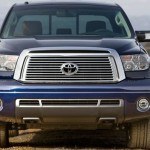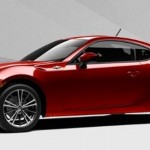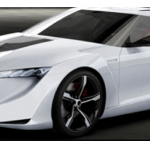 For many Americans, German-engineered vehicles like BMW, Mercedes, Porsche, and Audi hold an almost mythical allure. Their sleek designs and luxurious interiors have long been associated with quality and prestige. However, beneath the glitz of those high-end advertisements and hefty price tags, do these cars truly deliver on their promises?
For many Americans, German-engineered vehicles like BMW, Mercedes, Porsche, and Audi hold an almost mythical allure. Their sleek designs and luxurious interiors have long been associated with quality and prestige. However, beneath the glitz of those high-end advertisements and hefty price tags, do these cars truly deliver on their promises?
In my experience, the answer is often no. While these brands once represented the pinnacle of automotive excellence, it seems they’ve lost their edge. Over the decades, German automakers have become complacent, relying too heavily on their storied past rather than pushing forward with innovation. For instance, Japanese manufacturers like Toyota have been leading the charge in hybrid technology and advanced safety features, leaving their European counterparts in the dust.
To be fair, there was a time when German cars were synonymous with reliability. Back in the '60s and '70s, Consumer Reports frequently praised the dependability of brands like Mercedes-Benz and BMW. But times change, and so do industries. Nowadays, German vehicles seem to suffer from a mix of outdated engineering practices and inflated expectations.
Here are a few reasons why I think German-engineered cars might not be worth the hype:
- Lack of Innovation: German automakers have grown sluggish in recent years. While Toyota has been revolutionizing the industry with its hybrid models, German brands continue to focus on traditional combustion engines. This lack of forward-thinking has left them lagging behind competitors.
- Reliability Issues: No one wants to shell out thousands of dollars only to find themselves constantly visiting the mechanic. Unfortunately, many German cars require frequent repairs due to costly components that aren't always readily available. On the other hand, Toyota's vehicles are known for their durability and ease of maintenance.
- Manufacturing Offshore: Surprisingly, not all German cars are actually manufactured in Germany. For example, Volkswagen produces certain models destined for the U.S. market in Mexico, while Audi’s luxury lineup also sees production south of the border. By contrast, Toyota has established numerous assembly plants right here in the States, ensuring local jobs and reducing shipping costs.
So, if you're in the market for a dependable and reasonably priced vehicle, consider going with a Toyota—or better yet, check out its luxury division, Lexus. Both offer excellent alternatives without the unnecessary frills or inflated prices.
Related Posts
Roll Forming Machine,Track Roll Forming Machine,Sheet Roll Forming Machine,Plate Roll Forming Machine
Yangzhou Donglun Industrial Equipment Co., Ltd , https://www.dltubemill.com
 Toyota Trying To Attract Younger Drivers To Lexus With New Image
Toyota Trying To Attract Younger Drivers To Lexus With New Image  How To Suck At Buying A New Car
How To Suck At Buying A New Car  Lexus Unveils *Officially* The GS 350
Lexus Unveils *Officially* The GS 350  Our Favorite 2013 Toyota Models
Our Favorite 2013 Toyota Models  Why Toyota Supra Fans Will Love The Scion FR-S
Why Toyota Supra Fans Will Love The Scion FR-S  Toyota Concept Cars We Would Like To See In Production
Toyota Concept Cars We Would Like To See In Production